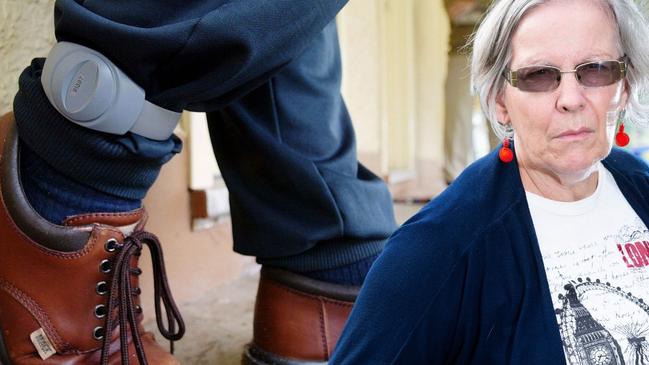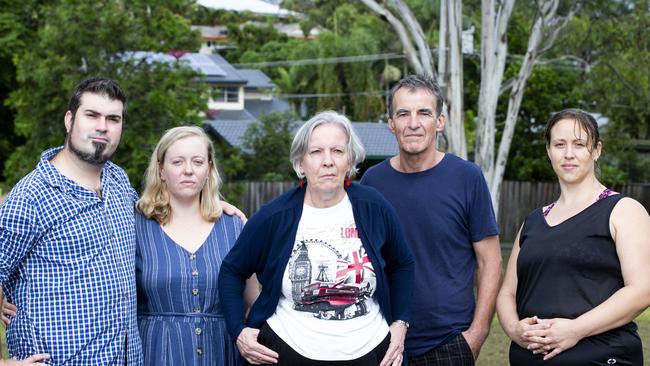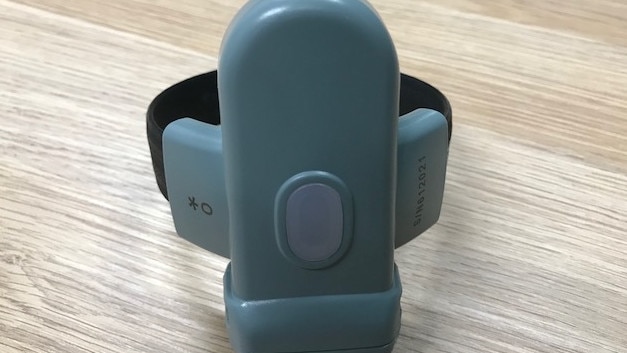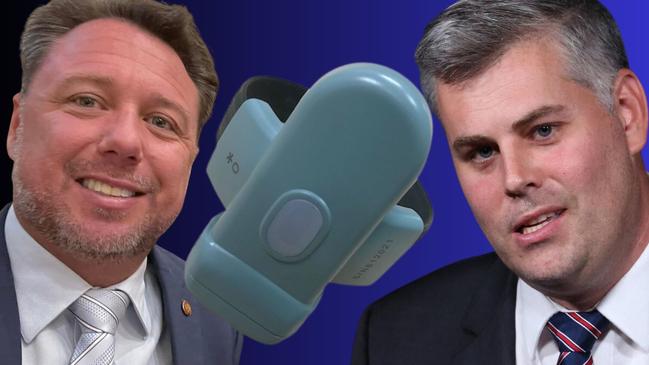Courts to rule on GPS tracker trial to include more Logan teens
GPS ankle monitors will be put on some serious youth offenders aged over 15 after youth bail houses closed two years ago. But one woman, hospitalised after being clobbered by an eshay, says that’s not enough.

Logan
Don't miss out on the headlines from Logan. Followed categories will be added to My News.
Juvenile offenders as young as 15 in Logan, Townsville, Moreton and the Gold Coast are being used as test cases for electronic monitoring bracelets after this month’s overhaul of youth justice laws.
Last week, state parliament extended a trial of the GPS tracking devices by two years to 2025 and dropped the minimum age of participants to 15, after an alarming number of youth gang crimes across parts of the state, including in Logan.
Youth bail houses were abolished in 2020 after it was revealed they were costing taxpayers up to $2600 a day to house teens at secret locations at Logan, Townsville, Mount Isa, and Camooweal.
But a Logan charity volunteer, hospitalised after being bashed over the head by an eight-year-old eshay, said the measures were not tough enough and called for widespread use of electronic monitoring bracelets for juvenile reoffenders.
Vivian McDermottwas hospitalised in 2021 after being belted over the head by an eight-year-old eshay wielding a metal scooter.
Mrs McDermott, a retired child care worker, was working for a charity outlet in Logan in 2021 when youths entered the store and took items without paying.
She gave chase and one boy, aged eight at the time, whacked her over the head with a metal scooter, leaving her on the pavement where it is believed she suffered a heart attack.

“Nothing has been done since then and my requests for the police and Youth Justice officers to try to help this boy and his family led nowhere,” she said.
“I have been told that local police take this kid home on a daily basis and because he is so young there is no jail or major repercussions.
“I believe the electronic anklets can be used on those younger than 15 if they keep reoffending and terrorising the community.
“Some of these kids will be behind bars by the time they are 18 anyway – so why can’t the justice system take them out of the community, out west to a sheep station, until they can get their lives together.”
Mrs McDermott was speaking out after calls by Hinchinbrook MP Nick Dametto for more GPS monitoring devices to be fitted to more children out on bail, especially in the Townsville region, south of his electorate.
“The fact of the matter is usually we do know where most of these kids are,” Mr Dametto said.
“They are trying to ram cop cars and are all over Facebook letting people know where they are.
“This extra layer of protection for the community is necessary.
“It would be even better if they would allow us to attach GPS monitors to these kids who have been put in a relocation sentencing site.
“The government would not have to build the big fences or the big walls like they have at Townsville’s Cleveland Youth Detention Centre.
“It would be a nice rural property with GPS monitoring devices on those kids so when they run away from the centre, they can be given a drink of water and walked back.”

Last week, Police Minister Mark Ryan told parliament an independent peer review of the current trial in Townsville, Moreton, Logan and Gold Coast found the need for a bigger review sample size to better gauge its effectiveness.
Since the trial began in 2021, only 13 juvenile reoffenders have been fitted with electronic monitoring devices as part of their bail conditions.
“The extension of the trial to April 2025 and expansion to include young people 15 years and over will provide a bigger sample size to support decisions on the future use of electronic monitoring devices,” he said.
“ … There will be a further review in the lead up to the new expiry date.”
The trial, which is only for juveniles granted bail, was extended last week to include Cairns, Mount Isa and Toowoomba with the minimum age dropped from 16 to 15.

A Justice Department spokesman said suitability assessments must occur before courts consider candidates for GPS trackers but ultimately, courts will decide who gets the devices depending on a young person’s risk of reoffending.
“Factors such as technological requirements, a need for stable accommodation, and the availability of support from a parent or caregiver to maintain the device are included in the assessment,” the spokesman said.
“Ultimately, courts make decisions about which measures to apply based on the evidence before them, while also considering a young person’s risk of reoffending.”
The electronic GPS device trial followed the closure of the state’s bail houses and a five-point action plan initiated in 2020 to crack down on youth crime.
Part of that strategy was to roll out a police strike team to patrol streets in unmarked cars looking to arrest kids breaking the law.





